Sign up for our newsletter!
Your data will be handled in compliance with our privacy policy.
Your data will be handled in compliance with our privacy policy.
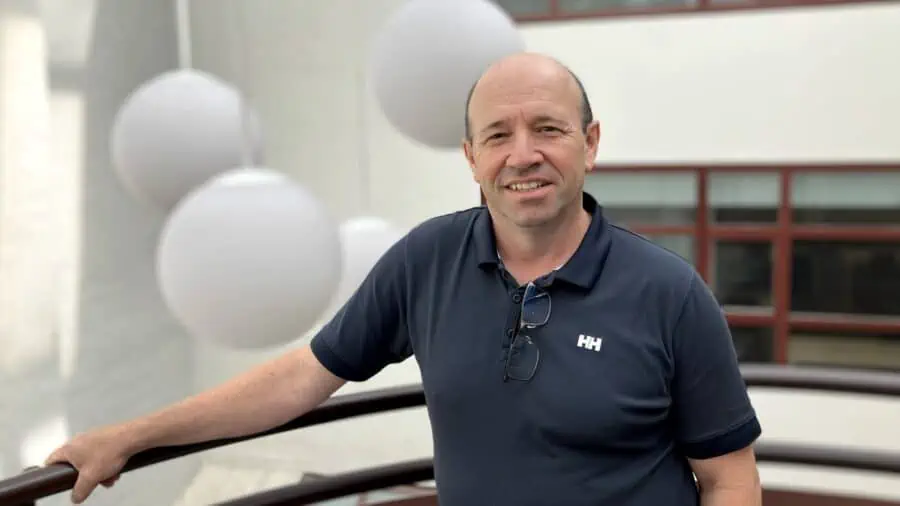
Smoltek Hydrogen has received an order to carry out a small preliminary study of a special type of electrochemical cell, adapted for electronic devices. This could open new business opportunities for Smoltek.
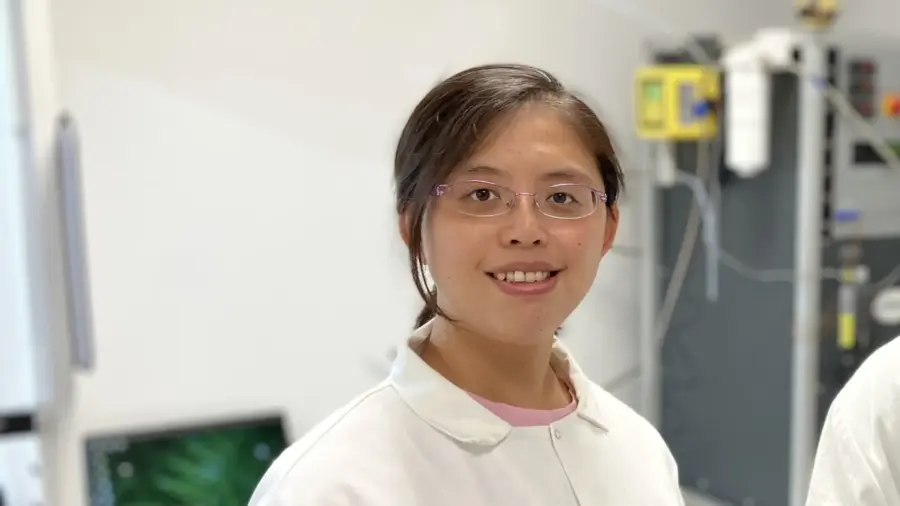
Smoltek is a Gothenburg-based materials technology company that specializes in research and development of applications based on carbon nanofibers, which can create new products with revolutionary properties.
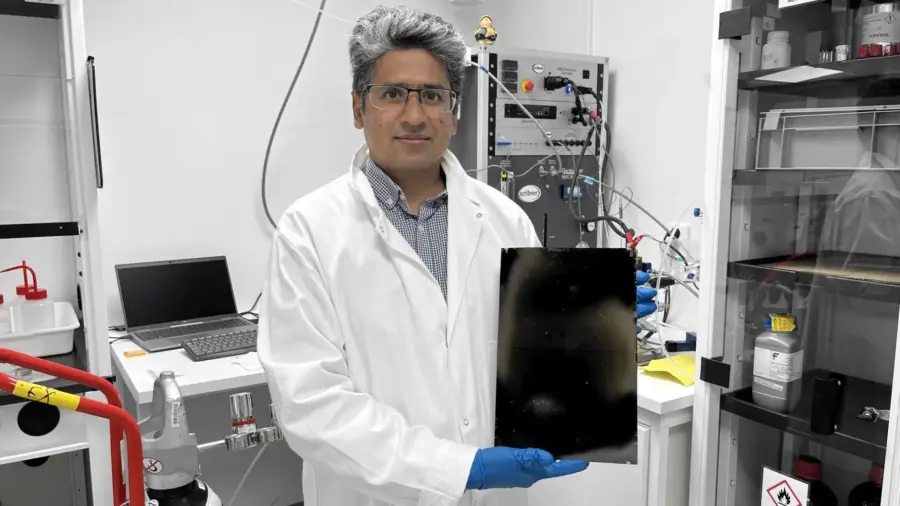
Smoltek Hydrogen has made a significant technological breakthrough. The R&D team has successfully grown carbon nanofibers (CNFs) over an A4-sized area, marking the first time such a large CNF-covered material sample has been fabricated. This breakthrough is a crucial step towards industrial scalability of carbon nanofiber coating, which is a key step in developing the porous transport electrode for PEM electrolyzers and similar solutions for fuel cells being developed by Smoltek Hydrogen.
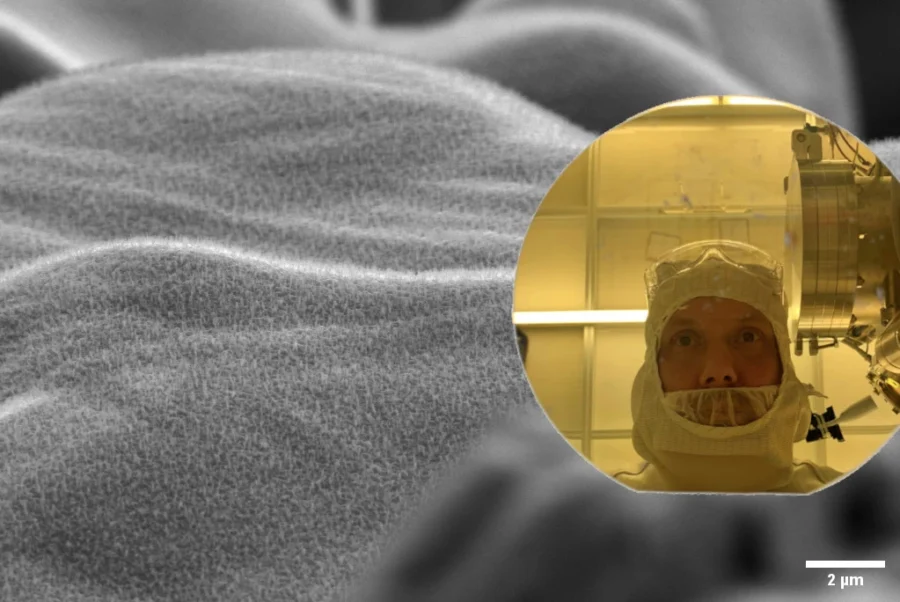
During the spring, we have had John Schack, a master’s thesis student, with us at Smoltek Hydrogen who has been working on the synthesis of carbon nanofibers (CNF) – where we have adjusted the growth recipe to use hydrogen as input instead of ammonia.
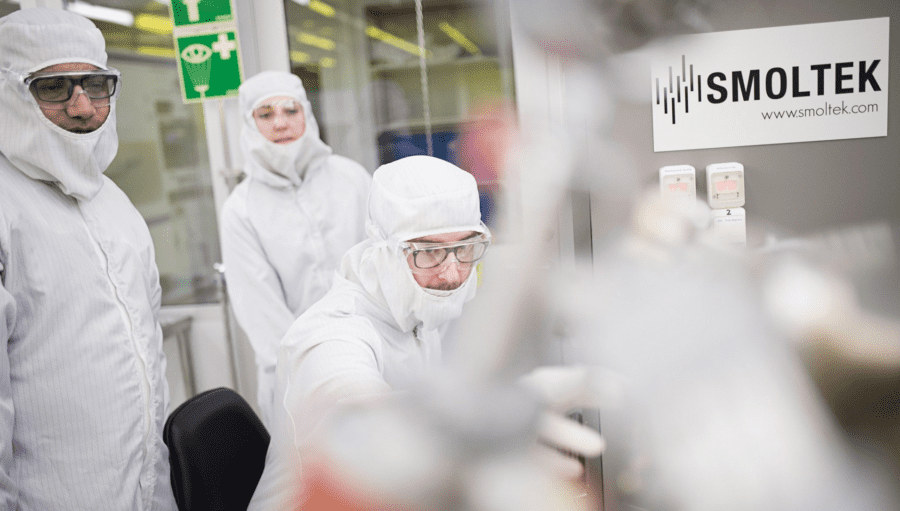
Towards scalability of industrial carbon nanofiber growth: The development of the industrial manufacturing concept for Smoltek Hydrogen’s Electrolyzer Cell Material is at its final stages, with aim on being finalized during 2024. As a stepping stone, the capability in the company’s existing Plasma Enhanced Chemical Vapor Deposition (PECVD) tool has been extended and A4 size plasma has been achieved. This is a crucial step towards industrial scalability of carbon nanofiber growth.
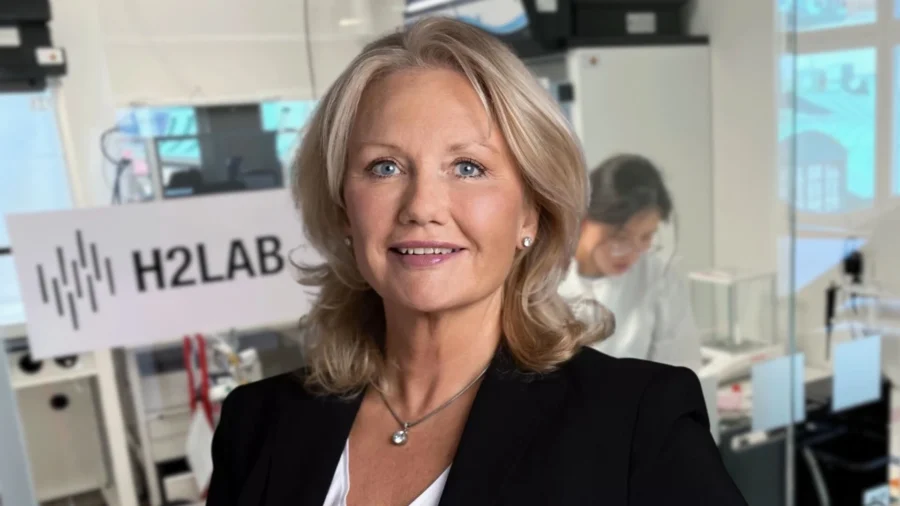
Smoltek Hydrogen has developed a new material that solves the major technical challenge that threatens to halt the fast-growing industry for green hydrogen produced by intermittent energy sources, such as solar and wind power. With the groundbreaking nanomaterial, the use of iridium (catalysts) in PEM electrolyzers can be reduced to levels that make large-scale hydrogen production profitable.
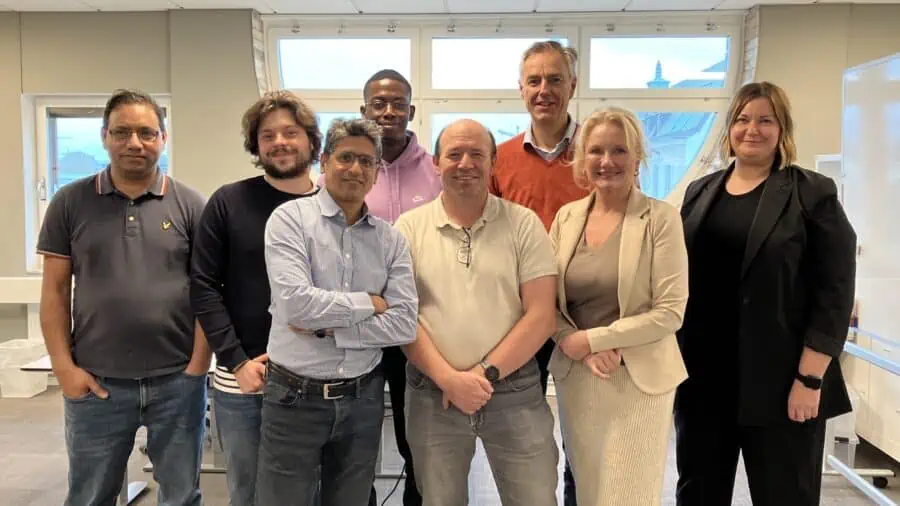
Smoltek Hydrogen and AGC Plasma Technology Solutions have finalized the design of a Prototype Coater for industrial growth of carbon nanofibers. The purpose with the tool is to verify that the nanofibers can be grown using a Plasma Enhanced Chemical Vapor Deposition (PECVD) technology from AGC. The technology is scalable and can be extended to be used for substrates of several square meters, for future mass production.

One of the world's largest vehicle manufacturers is testing custom-made prototypes of a cell material that can significantly reduce the amount of iridium in an electrolyzer cell. The custom-made prototypes delivered by the subsidiary Smoltek Hydrogen have the potential to reduce the iridium load in electrolyzer cells by 95% compared to today's commercial materials, which is a prerequisite for large-scale production of fossil-free hydrogen.

Smoltek Hydrogen has produced hydrogen, for 1,000 hours with a catalyst load of only 0.2 milligrams of iridium/cm2, without any breakdown of the nanostructure in the cell having occurred.

Smoltek Hydrogen has placed an order for the design and engineering of a Prototype Coater for industrial growth of carbon nanostructures. The purpose is to verify that the nanostructures can be grown using the equipment from AGC Plasma Technology Solutions that has been selected for future mass production – a Plasma Enhanced Chemical Vapor Deposition (PECVD) tool that can be configured for substrates of several square meters.
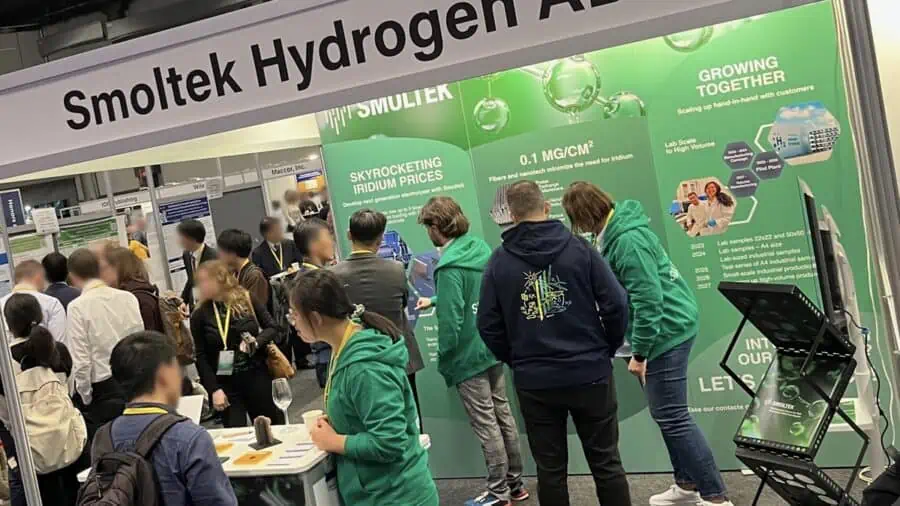
Smoltek Hydrogen attended the 244th ECS event in Gothenburg, October 8-12. This was a perfect venue to introduce our new material for electrolyzers to potential customers. The message was that now we are ready to engage in product development projects with electrolyzer companies.
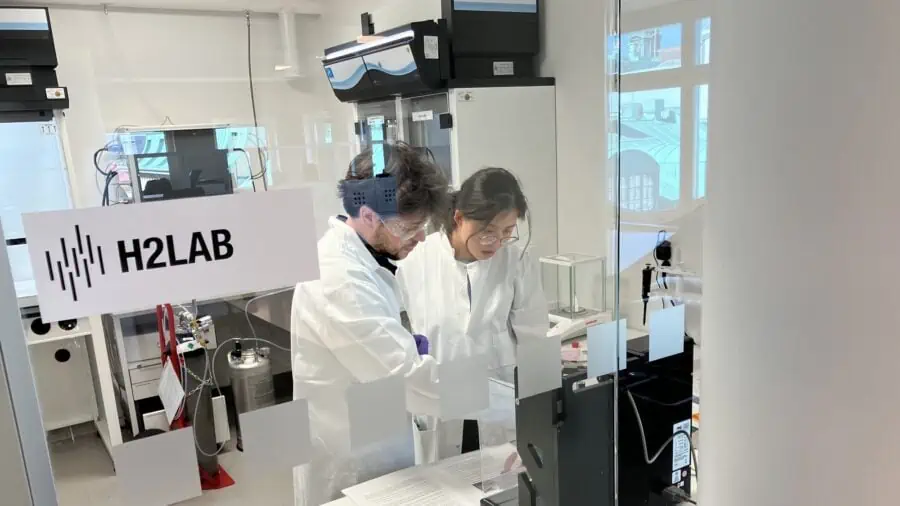
Efficient use of iridium can boost green hydrogen production in this decade and Smoltek Hydrogen wants to seize the opportunity by offering a nanostructured porous transport electrode that reduces cost and optimizes use of the critical anode catalyst in PEM electrolysis cells.